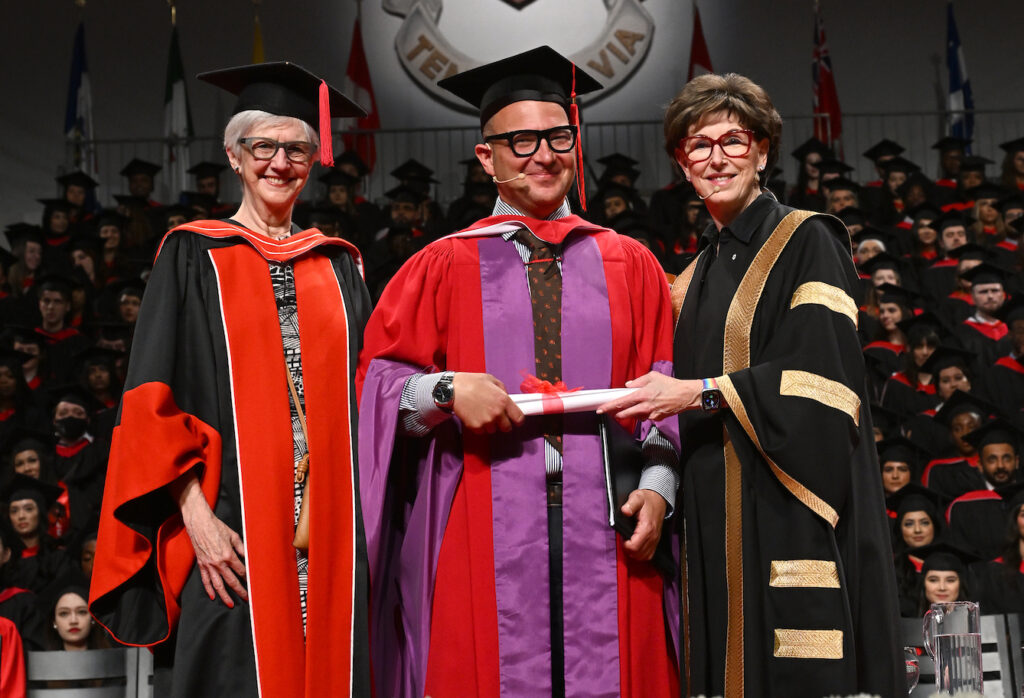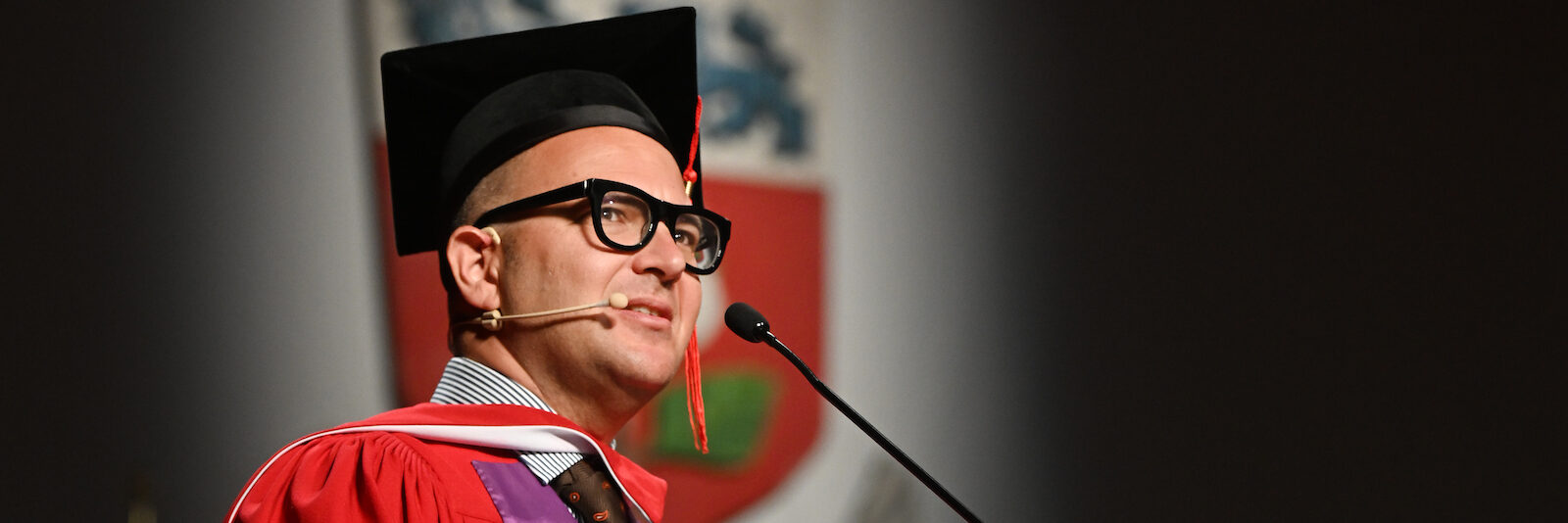The first of four cohorts of graduands from York University’s Faculty of Liberal Arts & Professionals Studies celebrated their respective milestones on June 20 during the sixth Spring Convocation ceremony for 2023.
Students from the class of 2023 were greeted by Chancellor Kathleen Taylor, who shared inspiring words as an alumna of York and encouraged the group to embrace failure, saying “always remember that failure is not a reflection of your worth, but simply a stepping stone towards your next great achievement.”
Taylor’s message was echoed by Cory Doctorow, the recipient of an honorary doctor of laws degree. Doctorow is a prolific science fiction author, technology and digital rights activist and journalist who spoke of his own academic journey and offered a message of empowerment to graduands.

“It is a gigantic honour to be here today, and to be recognized in this way,” Doctorow said. “I’m profoundly grateful to the faculty and administration here at York, and to my friends and family in the audience, especially my parents, who put up with a lot – as you’ll shortly hear.”
Doctorow, who began publishing science fiction at the age of 17, shared with guests his post-secondary experience, and said after enrolling in and dropping out of four universities in four years – his first try, at York – he realized he wasn’t “cut out for it.” Very few people saw science fiction writing as “literature” and he left academia without a degree, but with a drive to chart his own path in writing, and then later, technology and digital rights.
As his career moved into that technology sector, he shared he felt he was finally surrounded by people “who thought that science fiction writing was literally the coolest thing in the world.
“I think they’re right,” he continued. “A couple dozen books later – and after 20 years of working in digital human rights, in intergovernmental bodies like the UN and the EU – I’ve had cause to reflect on science fiction and its connection to politics, literature, and ‘the human condition.'”
He went on to say that society is in a polycrisis: climate emergency, inequality, infrastructure neglect, rising authoritarianism and zoonotic plagues. He cautioned, however, that to intervene and create change one has to believe that change is possible. “After all,” he said, “if you can convince people that nothing can be done, they won’t try to do anything.”
Abandoning the belief that there is an alternative solution to a problem, he suggested, is the opposite of science fiction. His job, he said, is to imagine alternatives. However, he cautioned that science fiction does not “predict” outcomes.
“If we could predict the future, then what we did wouldn’t matter, because the future was coming no matter what.”
Science fiction, he continued, does the opposite of predict – it contests; it demands we seek out alternatives where there is something better than optimism: hope.
“Hope is the belief that if we make a change that betters our circumstances, that from our new vantage point we will espy a previously obscured next step that will bring us closer to a better future,” Doctorow said. “Hope is how we’ll get through the polycrisis.”
Doctorow closed by saying that although science fiction writing wasn’t valued as “literature” in the early 1990s, there was a place for it – along with all genres and styles of writing. And despite the challenges he faced, he persevered with the belief that science fiction is still important literature.
“Hope begins with the ability to imagine alternatives, and there is always an alternative,” he said.


